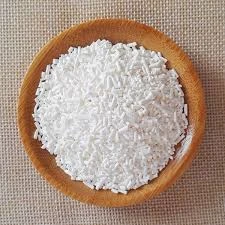
chilled water treatment chemicals
Chilled Water Treatment Chemicals Ensuring Efficiency and Longevity in HVAC Systems
Chilled water systems are a fundamental component in modern heating, ventilation, and air conditioning (HVAC) systems, providing the necessary cooling needed to maintain comfortable indoor environments. However, the efficiency and lifespan of these systems can be significantly impacted by the presence of contaminants such as scale, corrosion, and biological growth. To combat these issues, chilled water treatment chemicals have become essential in maintaining the performance and reliability of HVAC systems.
The Importance of Water Treatment
Poor water quality can lead to a variety of problems within a chilled water system. Scale formation, caused by dissolved minerals precipitating out of solution, can build up in pipes and heat exchangers, restricting flow and reducing heat transfer efficiency. Corrosion can occur when water interacts with metals, leading to pitting or even complete failures in pipework and equipment. Additionally, biological growth, including bacteria and algae, can thrive in warm, stagnant water if not treated properly. These factors can result in increased energy costs, frequent system breakdowns, and costly repairs, making proper water treatment not just beneficial but essential.
Types of Chilled Water Treatment Chemicals
1. Corrosion Inhibitors These chemicals are specifically formulated to protect metal surfaces from oxidative damage. They work by forming a protective layer on the metal surface, preventing direct contact with water and dissolved oxygen. Common examples include nitrites, phosphonates, and tannins, which can significantly extend the lifespan of chilled water systems and reduce maintenance costs.
2. Scale Inhibitors Scale inhibitors are crucial for preventing the buildup of calcium carbonate and other mineral deposits in the system. By chemically modifying the properties of these minerals, scale inhibitors keep them in solution and prevent them from crystallizing and adhering to surfaces. Polyacrylate and phosphonate compounds are widely used for this purpose, ensuring that heat exchangers operate at optimal efficiency.
chilled water treatment chemicals

3. Biocides To combat biological growth, biocides are employed to kill or inhibit the growth of bacteria, algae, and fungi in the chilled water system. Regular use of biocides can help maintain water quality and prevent the formation of biofilms, which can create additional resistance to heat transfer. Commonly used biocides include chlorine, bromine, and non-oxidizing agents like isothiazolinones.
4. pH Adjusters Maintaining the correct pH level is vital for the effectiveness of inhibitors and biocides. pH adjusters such as sulfuric acid or sodium hydroxide can be used to neutralize acidic or alkaline conditions, ensuring that the water remains within an optimal range, typically between 6.5 and 8.5.
Implementation and Monitoring
Implementing a chilled water treatment program requires careful planning and monitoring. Regular testing of water chemistry is crucial to ensure that levels of contaminants remain within acceptable limits and that treatment chemicals are being effective. Utilizing advanced monitoring systems can automate this process, providing real-time data and enabling prompt adjustments as necessary.
Conclusion
Chilled water treatment chemicals play a pivotal role in enhancing the efficiency and longevity of HVAC systems. By effectively addressing issues such as scale, corrosion, and biological growth, these chemicals help maintain optimal operational conditions and reduce the risk of costly repairs. The proper selection and application of these chemicals, coupled with regular monitoring, can make a significant difference in the performance of chilled water systems, leading to cost savings and improved indoor air quality. As the demand for efficient HVAC systems continues to rise, investing in quality water treatment solutions will become increasingly vital for building managers, facility operators, and HVAC professionals alike.
-
Pure Sodium Dichloroisocyanurate Dihydrate | Powerful DisinfectantNewsAug.29,2025
-
Industrial Chemicals: Quality & Purity for Every IndustryNewsAug.28,2025
-
Nitrile Rubber Honoring Strict Production StandardsNewsAug.22,2025
-
Aspartame Ingredients Honoring Food Safety ValuesNewsAug.22,2025
-
Fertilizer for Balanced Plant NutritionNewsAug.22,2025
-
Cyanide Gold Processing with High Purity AdditivesNewsAug.22,2025
-
Formic Acid in Textile Dyeing ApplicationsNewsAug.22,2025
Hebei Tenger Chemical Technology Co., Ltd. focuses on the chemical industry and is committed to the export service of chemical raw materials.
-

view more DiethanolisopropanolamineIn the ever-growing field of chemical solutions, diethanolisopropanolamine (DEIPA) stands out as a versatile and important compound. Due to its unique chemical structure and properties, DEIPA is of interest to various industries including construction, personal care, and agriculture. -

view more TriisopropanolamineTriisopropanolamine (TIPA) alkanol amine substance, is a kind of alcohol amine compound with amino and alcohol hydroxyl, and because of its molecules contains both amino and hydroxyl. -

view more Tetramethyl Thiuram DisulfideTetramethyl thiuram disulfide, also known as TMTD, is a white to light-yellow powder with a distinct sulfur-like odor. It is soluble in organic solvents such as benzene, acetone, and ethyl acetate, making it highly versatile for use in different formulations. TMTD is known for its excellent vulcanization acceleration properties, which makes it a key ingredient in the production of rubber products. Additionally, it acts as an effective fungicide and bactericide, making it valuable in agricultural applications. Its high purity and stability ensure consistent performance, making it a preferred choice for manufacturers across various industries.





